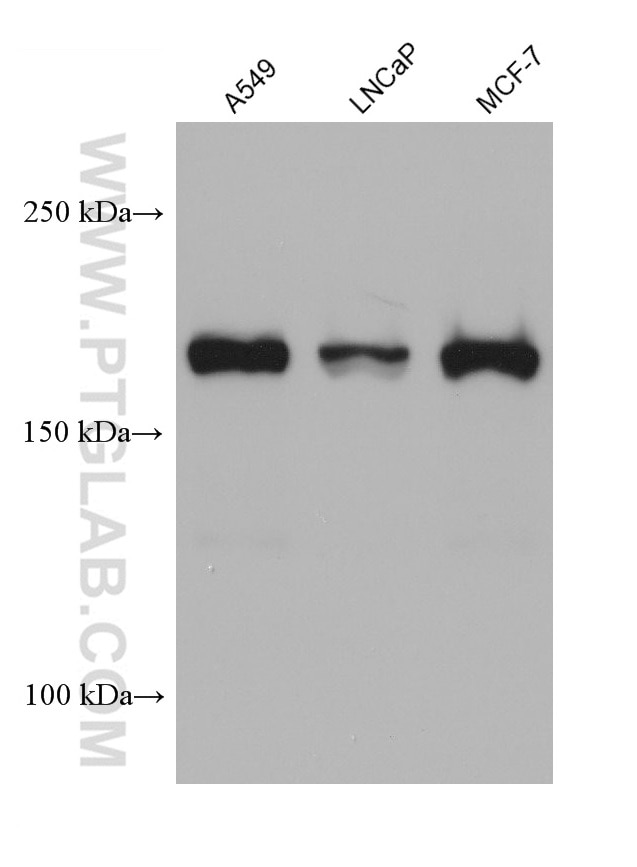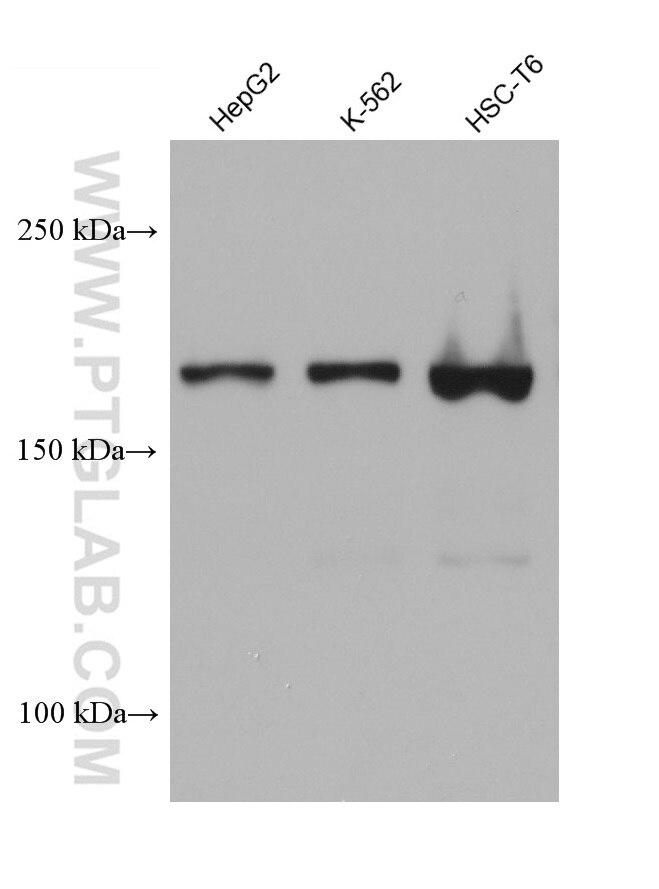IQGAP1 Monoclonal antibody
IQGAP1 Monoclonal Antibody for WB, ELISA
Host / Isotype
Mouse / IgG2a
Reactivity
Human, rat
Applications
WB, ELISA
Conjugate
Unconjugated
CloneNo.
2E11A2
Cat no : 68588-1-Ig
Synonyms
Validation Data Gallery
Tested Applications
| Positive WB detected in | A549 cells, HepG2 cells, LNCaP cells, MCF-7 cells, K-562 cells, HSC-T6 cells |
Recommended dilution
| Application | Dilution |
|---|---|
| Western Blot (WB) | WB : 1:2000-1:10000 |
| It is recommended that this reagent should be titrated in each testing system to obtain optimal results. | |
| Sample-dependent, Check data in validation data gallery. | |
Product Information
68588-1-Ig targets IQGAP1 in WB, ELISA applications and shows reactivity with Human, rat samples.
| Tested Reactivity | Human, rat |
| Host / Isotype | Mouse / IgG2a |
| Class | Monoclonal |
| Type | Antibody |
| Immunogen | IQGAP1 fusion protein Ag19321 |
| Full Name | IQ motif containing GTPase activating protein 1 |
| Calculated Molecular Weight | 189 kDa |
| Observed Molecular Weight | 190-195 kDa |
| GenBank Accession Number | BC151834 |
| Gene Symbol | IQGAP1 |
| Gene ID (NCBI) | 8826 |
| Conjugate | Unconjugated |
| Form | Liquid |
| Purification Method | Protein A purification |
| Storage Buffer | PBS with 0.02% sodium azide and 50% glycerol pH 7.3. |
| Storage Conditions | Store at -20°C. Stable for one year after shipment. Aliquoting is unnecessary for -20oC storage. 20ul sizes contain 0.1% BSA. |
Background Information
IQGAP1 is a member of a family of scaffolding proteins that interact with signaling and structural molecules. It localizes to sites of cell-cell contact in epithelial cells and regulates distinct cellular processes including cell adhesion, cell migration, extracellular signals through interacting with numerous protein. Multiple studies have shown that IQGAP1 is up-regulated in many human malignancies, such as lung cancer, ovarian cancer, colon cancer, breast cancer, melanoma and HCC. And IQGAP1 plays a critical role in cancer cell invasion.
Protocols
| Product Specific Protocols | |
|---|---|
| WB protocol for IQGAP1 antibody 68588-1-Ig | Download protocol |
| Standard Protocols | |
|---|---|
| Click here to view our Standard Protocols |



